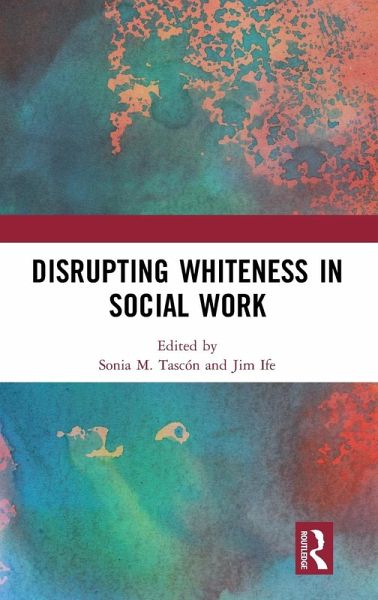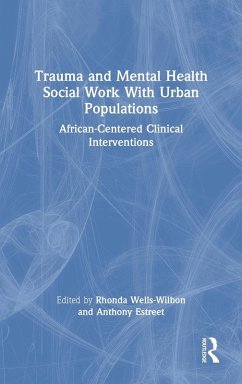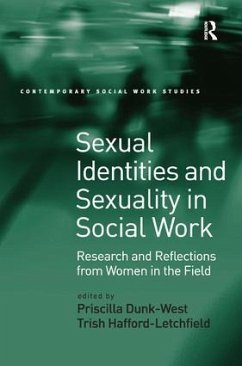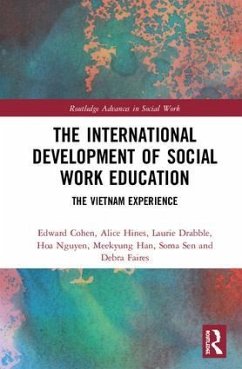
Disrupting Whiteness in Social Work
Versandkostenfrei!
Versandfertig in 1-2 Wochen
168,99 €
inkl. MwSt.
Weitere Ausgaben:

PAYBACK Punkte
84 °P sammeln!
Focussing on the epistemic - the way in which knowledge is understood, constructed, transmitted and used - this book shows the way social work knowledge has been constructed from within a white western paradigm, and the need for a critique of whiteness within social work at this epistemic level. Social work, emerging from the western Enlightenment world, has privileged white western knowledge in ways that have been, until recently, largely unexamined within its professional discourse. This imposition of white western ways of knowing has led to a corresponding marginalisation of other forms of ...
Focussing on the epistemic - the way in which knowledge is understood, constructed, transmitted and used - this book shows the way social work knowledge has been constructed from within a white western paradigm, and the need for a critique of whiteness within social work at this epistemic level. Social work, emerging from the western Enlightenment world, has privileged white western knowledge in ways that have been, until recently, largely unexamined within its professional discourse. This imposition of white western ways of knowing has led to a corresponding marginalisation of other forms of knowledge. Drawing on views from social workers from Asia, the Pacific region, Africa, Australia and Latin America, this book also includes a glossary of over 40 commonly used social work terms, which are listed with their epistemological assumptions identified. Opening up a debate about the received wisdom of much social work language as well as challenging the epistemological assumptions behind conventional social work practice, this book will be of interest to all scholars and students of social work as well as practitioners seeking to develop genuinely decolonised forms of practice.













